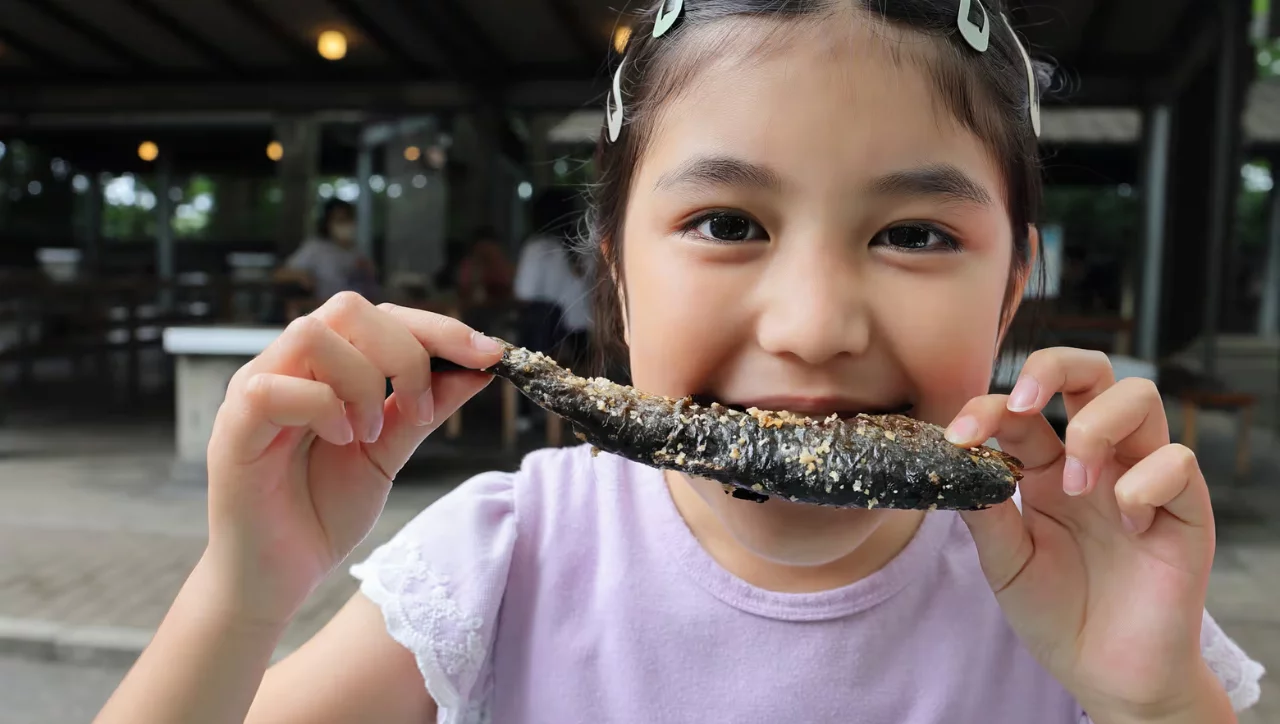Children who eat fish are better than others, why?

How to nurture kindness in children? According to scientific research, the answer is fish!
Modern parents want their children not only to be smart and educated but also kind, helpful, and compassionate. But how can such qualities be developed? Scientists at the University of Bristol in the UK came to an interesting conclusion — eating fish contributes to the development of positive behavior in children.
The study examined the eating habits and behavior of thousands of seven-year-old children. The results showed that children who consumed at least 190 grams of fish per week were significantly more kind and helpful compared to their peers who did not eat fish at all. More precisely, children who did not eat fish were 43% less likely to show "prosocial" — that is, socially beneficial — behaviors such as sharing toys, helping friends, or comforting someone who is upset.
There is a scientific basis for this effect. Omega-3 fatty acids, vitamin D, iodine, and selenium found in fish positively affect brain development, which in turn enhances emotional stability, empathy, and social engagement in children.
Some also point to other contributing factors. For example, fish products are often more expensive, so children who eat them may come from more affluent families. This, in turn, might be linked to the quality of education and upbringing. Therefore, social factors may also have influenced the results of the study.
At the same time, it’s important not to ignore the environmental impact of fish consumption. According to recent data, due to excessive fishing, fish populations may sharply decline by 2048. Moreover, pollution of the oceans — from plastic waste and sewage — increases the risk of harm to the human body through fish consumption.
So, balance is necessary here. If you want your child to be kind and helpful, including fish in their diet occasionally might be beneficial. However, this should be done with environmental responsibility in mind — for example, by choosing fish from sustainable sources or considering eco-friendly alternatives.
Another interesting point in the study: while watching the cartoon Finding Nemo, children reportedly cried thinking about the fish they had eaten. This may indicate a development of their emotional sensitivity and empathy toward nature.
In conclusion, if you want to nurture kindness, helpfulness, and compassion in your child, it may be worth considering including fish in their diet. At the same time, preserving the environment and quality of life for future generations is also vital. With wisely and responsibly chosen fish-based meals, it is possible to achieve both — healthy, kind children and a healthy planet!
Say: “A child who eats fish hurries to help others!”
Don’t say: “Today’s lunch is tuna pasta — the cure for bad manners!” Read “Zamin” on Telegram!
Ctrl
Enter
Found a mistake?
Select the phrase and press Ctrl+Enter 


















